
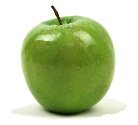


Helping you make healthy choices for you and your family
Starting a family is a very special time in your life.
The few months leading up to conception can significantly affect the health of your future baby and that includes the father-to-be, too.
The few months leading up to conception can significantly affect the health of your future baby and that includes the father-
If you are planning to start a family, click on the headings below to find out how you can best prepare yourself to give your baby the best chance for a long and healthy life.

If you are a smoker, now is the time to stop. Chemicals absorbed from cigarette smoke reduce the number of cells produced in the baby's body and brain. Nicotine constricts the blood vessels to the placenta which reduces the blood supply to the baby. The raised levels of carbon monoxide in the mother's blood also reduces the amount of oxygen reaching the baby, resulting in lower birth weight and a higher incidence of premature birth. Studies have shown that babies of smokers are more likely to have congenital abnormalities, and miscarriage is twice as likely due to damaged blood vessels in the placenta.
The father-
There are a variety of ways to stop smoking. Your GP can advise you or you can find out about support groups in your local library or Yellow Pages. At the end of the day, whichever method you choose, you will only succeed if you really want to give up. And, if you want a healthy baby, then that should be the best incentive.
^ Top
Alcohol
Alcohol is a poison and can seriously damage the developing baby, especially in the first six to 12 weeks of pregnancy. There is no safe level but you should never drink more than two units per day (one unit = one small glass of wine, half a pint of beer/cider, a pub measure of spirits) and certainly not every day. Alcohol in pregnancy can lead to Foetal Alcohol Syndrome which can cause facial abnormality, heart defects, abnormal limb development and reduced intelligence in your baby.
It would be better not to drink at all and if that is a problem for you, now is the time to wean yourself off alcohol. If you and your partner are heavy drinkers, your GP should be able to advise you.
^ Top
It would be better not to drink at all and if that is a problem for you, now is the time to wean yourself off alcohol. If you and your partner are heavy drinkers, your GP should be able to advise you.
^ Top

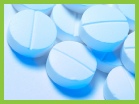

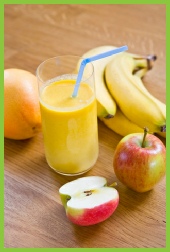
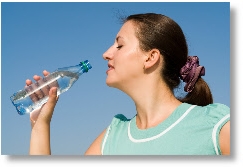

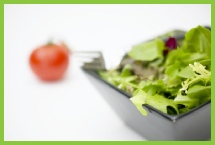

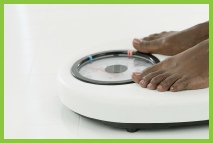
If you are overweight before you are pregnant, your body will be placed under a much greater strain during pregnancy, giving rise to back problems, joint pains, varicose veins, cardiovascular problems, haemorrhoids and stretch marks.
Now is the ideal time to reach your desirable weight. If you are severely overweight, you should see your GP to discuss starting a family. He may refer you to a dietician. First, you should establish your body mass index (BMI). This is a measurement which is used by health professionals to establish what a patient's correct weight should be for their height. To check your BMI, enter your details in the form, below.
If you have more than 14lbs (6 kilos) to lose, then you should be careful how you reduce weight. It is best to do this gradually rather than try a restrictive diet, like the Atkins diet or other such diets that leave out major food groups. Cutting down on starchy carbohydrates (bread, pasta, cakes, rice and sugary foods) and eating little and often with regular aerobic exercise, is the safest way to reduce weight.
Restricting certain foods also reduces your nutrient intake and it is vital in this pre-pregnancy period to maintain optimum nutrition for a healthy body. Pregnancy takes a lot from the mother's body, especially calcium from her bones and teeth.
Where possible, organic fresh fruit and vegetables should be eaten, at least five portions a day but preferably eight. Vegetables can be combined in soups or as a raw vegetable juice to increase the amount consumed, as variety is more important than quantity. Processed food and Takeaways should be avoided or eaten only occasionally.
^ Top
Restricting certain foods also reduces your nutrient intake and it is vital in this pre-
Where possible, organic fresh fruit and vegetables should be eaten, at least five portions a day but preferably eight. Vegetables can be combined in soups or as a raw vegetable juice to increase the amount consumed, as variety is more important than quantity. Processed food and Takeaways should be avoided or eaten only occasionally.
^ Top
Dietary Support
Unfortunately, in today's world, it is impossible to receive the full complement of nutrients required to maintain good health. Every decade, the nutrient value in our fruits and vegetables is depleted because of modern farming methods. See Nutritional State of Our Food for more details.
The old saying "eating for two" is quite right - not in quantity of food but in quality. More nutrients are required during pregnancy because the baby will take all it needs from the mother's resources and if they are low, she may become malnourished. Therefore, it is important to build up the body before pregnancy.
Unfortunately, in today's world, it is impossible to receive the full complement of nutrients required to maintain good health. Every decade, the nutrient value in our fruits and vegetables is depleted because of modern farming methods. See Nutritional State of Our Food for more details.
The old saying "eating for two" is quite right -
There are certain nutrients which are essential to prevent birth defects as they are the building blocks for a new baby. The most well-known of these nutrients is folic acid which has been proven to prevent spina bifida. At least 400mcg of folic acid is needed daily and should be commenced at least three months before stopping contraception.
Folic acid can be found in citrus fruits, wheatgerm, wheatbran, nuts, pulses, wholemeal bread, eggs, brown rice, kidney beans and asparagus. Zinc helps the absorption of folic acid and can be found in meat, hard cheese, wholemeal bread, eggs, pulses, rice, green leafy vegetables and potatoes.
Your intake of Protein, calcium, magnesium and iron are also important at this stage and the vitamins A, B6, B12, C, D, E and K to prevent cleft palate, hydrocephalus (water on the brain), Siamese twins and kidney, limb, eye and brain malformation.
If you are concerned that you may be lacking in certain nutrients, a hair mineral analysis would be useful at this stage. A sample of hair is required and sent to a laboratory which tests for mineral levels and also toxic metals. This is available from Foresight and more information can be found here.
For a list of suppliers of quality nutritional supplements, recommended by doctors around the world for their safety and effectiveness, visit Useful Links. Doctors also recommend supplements for the father so he will be able to produce healthy sperm.
^ Top
Your intake of Protein, calcium, magnesium and iron are also important at this stage and the vitamins A, B6, B12, C, D, E and K to prevent cleft palate, hydrocephalus (water on the brain), Siamese twins and kidney, limb, eye and brain malformation.
If you are concerned that you may be lacking in certain nutrients, a hair mineral analysis would be useful at this stage. A sample of hair is required and sent to a laboratory which tests for mineral levels and also toxic metals. This is available from Foresight and more information can be found here.
For a list of suppliers of quality nutritional supplements, recommended by doctors around the world for their safety and effectiveness, visit Useful Links. Doctors also recommend supplements for the father so he will be able to produce healthy sperm.
^ Top
Most people do not drink sufficient fluids each day but now is a good time to get into the habit of increasing your consumption of water. Ideally you should be drinking at least two litres of water a day. That should not include water used for tea or coffee as they can both be dehydrating. This means that the benefit from their volume is soon cancelled out by their diuretic effect.
Sufficient fluids allow your body to remove toxins. If you are dehydrated, water is drained away from some cells and sent to the vital organs. This can lead to tiredness, lack of concentration and gastro-intestinal problems.
Tea and coffee both contain caffeine and should be kept to a minimum. If you drink a lot of these beverages then now is the time to cut down, gradually. Some women find that they cannot tolerate these drinks during pregnancy.
Fizzy drinks and any drinks containing artificial sweeteners should be avoided. Aspartame, which is commonly used in diet drinks is a bio-chemical toxin and has been found to cause birth defects amongst many other health problems. For more information on Aspartame click here.
A glass of fruit juice can be counted as one of your required daily portions of fruit but you should not drink more than two a day because they can be quite acidic.
If you have problems drinking water, then diluting fruit juice is one way of making it more palatable. However, like most things, if you drink it often enough it becomes an acquired taste.
Filtered water is better than water straight from the tap but remember to change the filters regularly to prevent bacteria, nitrate, and metal build up. Mineral water is also good, preferably “still” water from glass bottles rather than plastic. Plastic bottles may contain chemicals which can cause birth defects. If you can only buy plastic bottles, make sure you drink it as soon as possible, as the closer it is to the expiry date, the higher level of chemical contamination in the water. NEVER keep water in a plastic bottle in a hot place, like a car during summer as the plastic chemicals will easily leach into the water.
If you live in an area with artificially fluoridated water, you should avoid drinking tap water altogether. The only guaranteed method of eliminating this toxic chemical is to install a reverse osmosis unit. Details about this can be found here.
^ Top
Fizzy drinks and any drinks containing artificial sweeteners should be avoided. Aspartame, which is commonly used in diet drinks is a bio-
A glass of fruit juice can be counted as one of your required daily portions of fruit but you should not drink more than two a day because they can be quite acidic.
If you have problems drinking water, then diluting fruit juice is one way of making it more palatable. However, like most things, if you drink it often enough it becomes an acquired taste.
Filtered water is better than water straight from the tap but remember to change the filters regularly to prevent bacteria, nitrate, and metal build up. Mineral water is also good, preferably “still” water from glass bottles rather than plastic. Plastic bottles may contain chemicals which can cause birth defects. If you can only buy plastic bottles, make sure you drink it as soon as possible, as the closer it is to the expiry date, the higher level of chemical contamination in the water. NEVER keep water in a plastic bottle in a hot place, like a car during summer as the plastic chemicals will easily leach into the water.
If you live in an area with artificially fluoridated water, you should avoid drinking tap water altogether. The only guaranteed method of eliminating this toxic chemical is to install a reverse osmosis unit. Details about this can be found here.
^ Top
Personal Hygiene
You may be shocked to discover that many of the products you use daily for personal hygiene contain a toxic cocktail of chemicals which cannot only harm your long-
Common chemicals that should be avoided are: Sodium Lauryl Sulphate found in toothpastes and some mouthwashes; Sodium Laureth Sulphate found in shampoos, shower gels and bubble baths; Propylene Glycol found in skin care products; DEA, MEA, TEA found in cosmetics, shampoos and shower gels; Fluoride found in toothpastes; Triclosan found in toothpaste, deodorants and anti-bacterial products; and Talc. See Controversial Ingredients for more details.
Therefore, the best chance of having a healthy baby would be to find safer alternatives. These are much easier to find now that information about controversial ingredients has become better known.
For a list of reputable suppliers, see Useful Links.
^ Top
For a list of reputable suppliers, see Useful Links.
^ Top
If you have been using products containing the potentially harmful ingredients mentioned earlier, or eating a lot of processed or pesticide-laden food, it is wise to give your body a detox to rid it of the build up of toxins, before conceiving.
There are a number of books available on the market giving details on how to detoxify your body. Fruits and vegetables, preferably organic, are wonderful at eliminating toxins and the recipes and meal plans include these. Dairy products, wheat, meat and fish should be avoided during the detox and their nutrient value is replaced by seeds and other nutritious alternatives.
The diet is not intended to reduce weight but most people find they manage to achieve this, too. Exercise is an important part of detoxing as it will encourage the elimination of toxins through perspiration, and by helping to move the lymph around the body.
Drinking plenty of fluids, particularly hydrating fluids like water will also help to flush out the toxins more efficiently.
Some people experience headaches and a feeling of general malaise in the first two to three days of any detox programme. This is a good sign as it shows your body is effectively removing the toxins. Do not be tempted to take medication for a headache but instead try to relax in a warm bath with aromatherapy oils or listen to a relaxation tape, and drink extra water.
By the end of the detox you should notice that you are less tired with more energy, and your skin should be clearer and your eyes brighter.
After the 28 days you can continue to have occasional detox days until you are ready to conceive.
If there is any possibility that you are pregnant when you decide to detox, then it is advisable not to continue.
Taking Responsibility
Starting a family is an exciting part of your life and will be one of your greatest life-changing moments. When you hold your newborn baby in your arms, nothing will ever be the same again. Providing your precious child with a safe environment to grow, from a tiny collection of cells to a fully developed baby, is the first step in becoming a responsible parent and will give your baby the best chance of a healthy future.
Starting a family is an exciting part of your life and will be one of your greatest life-

Below 19 - Underweight
19.1 to 24.9 - Normal
25 to 29.9 - Overweight
30 to 39.9 - Obese
Over 40 - Morbidly Obese

It is well known that some drugs can affect the developing baby so they should be avoided wherever possible. If you are on medication for a medical condition like diabetes, thyroid disease, inflammatory bowel disease or epilepsy then you should talk to your GP about starting a family before you conceive.
Recent studies have shown that over-the-counter painkillers like Ibuprofen should be avoided in pregnancy and aspirin is also advised against. If you are in need of a painkiller for a headache, paracetamol is regarded as a safer choice. However, if you wish to avoid all drugs, a headache can be dealt with by lying down or rubbing Lavender oil on your temples.
Recent studies have shown that over-
During the pre-
Everyone should exercise for 30 minutes at least five days a week and now is no exception. Exercise strengthens the whole body and allows toxins to be dealt with by helping to move lymph around the lymphatic system (our garbage disposal system).
Having a supple body before pregnancy will make a significant difference when the extra demands increase during pregnancy and labour. Aerobic exercise like swimming, squash, jogging or aerobics sessions are ideal to prepare your body for pregnancy.
Having a supple body before pregnancy will make a significant difference when the extra demands increase during pregnancy and labour. Aerobic exercise like swimming, squash, jogging or aerobics sessions are ideal to prepare your body for pregnancy.
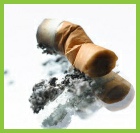
| Your Health Your Future |
| Controversial Ingredients |
| Nutritional State |
| Parent and Child |
| Microwave Ovens |
| Recommended Books |
| Skin Absorption |
| Sodium Lauryl Sulphate |
| Propylene Glycol |
| DEA, MEA, TEA |
| Chemical Calculator |
| Fluoride |
| Aspartame |
| Fluoridation |
| Water Filtration |
| Planning a Pregnancy |
| Pregnancy Care |
| Post Pregnancy Care |
| Amazon Books |
| EBooks |
| About Us |
| Health Services |
